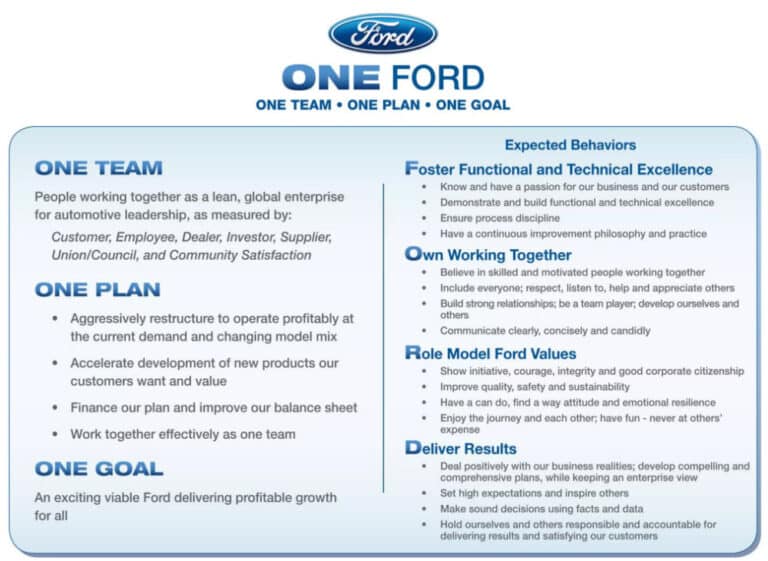- Breaking Down Silos: The book emphasizes the importance of breaking down traditional hierarchical structures (silos) in organizations. It advocates for a more network-centric approach to leadership and management, which fosters better communication and collaboration.
- Creating a Team of Teams: Fussell and Goodyear discuss creating a ‘team of teams’, where smaller, specialized teams are interconnected and empowered to make decisions swiftly. This approach is contrasted with rigid, top-down structures that can be slow to respond to change.
- Shared Consciousness and Trust: The authors highlight the need for a shared consciousness across the organization, where everyone understands the mission and goals. This requires a high level of trust and transparency within the team.
- Empowerment and Decision-making: One Mission advocates for empowering individuals and teams to make decisions at a local level, enabling faster responses and adaptation to changing situations.
- Adapting to Complexity: The book addresses how organizations can adapt to complex environments. It suggests that the interconnected, team of teams model is more suited to handling the complexities of modern business landscapes.
- Implementation Strategies: Practical advice and strategies are provided for leaders looking to implement these concepts in their organizations. The book includes real-world examples and case studies demonstrating how these ideas can be put into practice.
“One Mission” is particularly relevant for leaders and organizations looking to evolve their management and organizational structures to be more adaptive, collaborative, and efficient in today’s dynamic world.
Case Study: One Ford
The “One Ford” program was an initiative launched by Ford Motor Company in 2008 under the leadership of then-CEO Alan Mulally. The main objective of this program was to unify the company’s globally diverse operations and streamline its product line, while also aiming to improve efficiency, profitability, and brand value. Here’s a summary of the program and its benefits:
Description of the One Ford Program:
- Global Integration: The program aimed to integrate Ford’s global operations, moving away from the regionalized business model. This meant designing cars that could be sold in multiple markets with minimal modifications.
- Product Line Streamlining: “One Ford” focused on streamlining Ford’s product line, reducing the number of platforms and increasing the use of common parts across different models. This approach was intended to reduce costs and complexity.
- Focus on Core Brand: Ford decided to divest from many of its other brands like Volvo, Jaguar, Land Rover, and Aston Martin to focus on its core Ford brand.
- Financial Health: One aspect of the program was improving the financial health of the company, including better managing its debt and returning to profitability.
- Cultural Change: Mulally emphasized a cultural change within Ford, focusing on collaboration, communication, and a “One Team” approach to decision-making and problem-solving.
Benefits to Ford:
- Improved Profitability and Efficiency: The streamlined product lineup and shared components across models helped reduce manufacturing and development costs, significantly improving Ford’s profitability.
- Global Market Penetration: With the global integration of operations, Ford was able to sell more of its models in various international markets, leading to increased sales and a stronger global presence.
- Stronger Brand Identity: By focusing on its core Ford brand, the company strengthened its brand identity, which helped in marketing and customer loyalty.
- Cultural Transformation: The cultural shift towards more open communication and collaboration helped in breaking down silos within the company, leading to better decision-making and a more cohesive corporate strategy.
- Financial Stability: The program played a crucial role in Ford navigating the financial crisis of 2008 without resorting to a government bailout, unlike its competitors GM and Chrysler.
Case Study: Canon T.I.E.
It was our distinct honor and privilege to collaborate with industry giants such as Kern/Omnicom, Canon USA, and Canon CSA, embarking on an ambitious and transformative journey to establish a Marketing Centre of Excellence for Canon. This groundbreaking initiative, developed in partnership with the esteemed founders of Appreciative Inquiry, Prof. David Cooperrider and Prof. Ron Fry of Case Western Reserve University, marked a significant milestone. It involved unifying a diverse array of talented marketers from various divisions and a multitude of ethnic backgrounds into a singular, cohesive force guided by the principles of Positive Inquiry.
Our collaboration with these esteemed organizations and academic luminaries was not just a transformative change project but a confluence of vision, expertise, and groundbreaking positive inquiry methodologies aimed at redefining the essence of marketing excellence. Together, we meticulously laid the groundwork for a center that fosters innovation and strategic thinking and celebrates and harnesses the rich diversity of ideas and perspectives deeply rooted in the Positive Inquiry approach.
The new Centre of Excellence is a testament to the power of unity in diversity and the transformative impact of Positive Inquiry, bringing together a tapestry of cultures and professional insights under one umbrella. The result is a dynamic, integrated team equipped with a broad spectrum of skills and experiences, all converging towards a common goal – to redefine the frontiers of marketing and set new benchmarks for the industry.
We take immense pride in this achievement, confident that it will serve as a beacon of innovation, collaboration, and inclusive excellence in the marketing realm for years to come, demonstrating the profound impact of Positive Inquiry in shaping successful, forward-thinking organizations.

Author
-
Edwin Korver is a polymath celebrated for his mastery of systems thinking and integral philosophy, particularly in intricate business transformations. His company, CROSS-SILO, embodies his unwavering belief in the interdependence of stakeholders and the pivotal role of value creation in fostering growth, complemented by the power of storytelling to convey that value. Edwin pioneered the RoundMap®, an all-encompassing business framework. He envisions a future where business harmonizes profit with compassion, common sense, and EQuitability, a vision he explores further in his forthcoming book, "Leading from the Whole."



